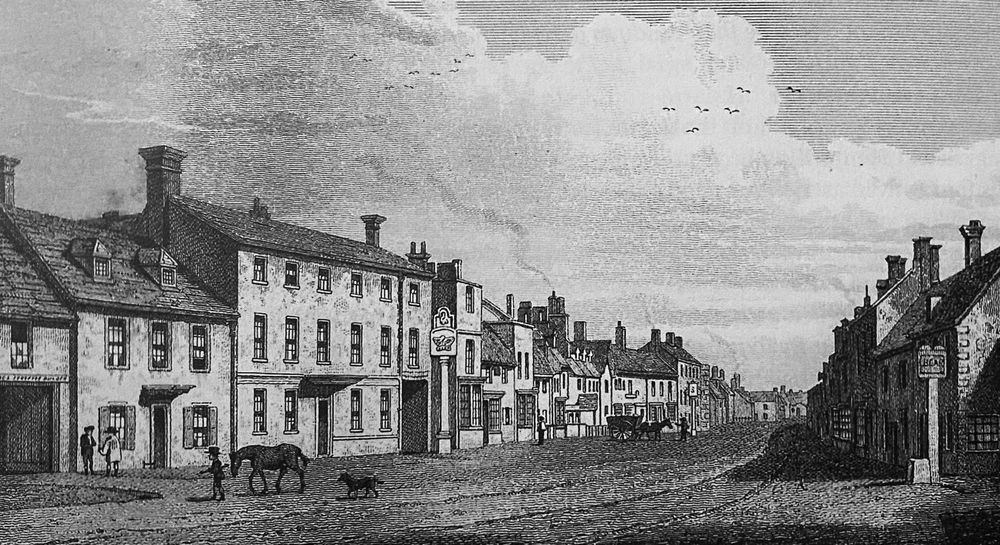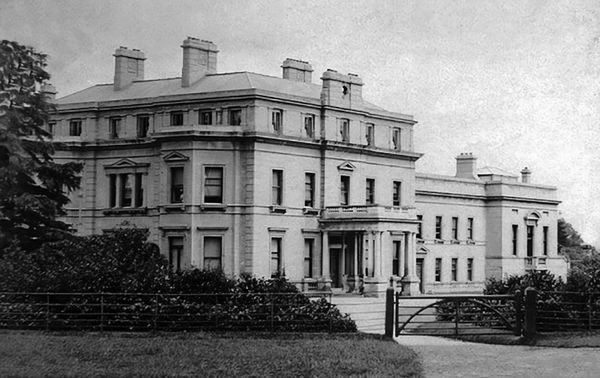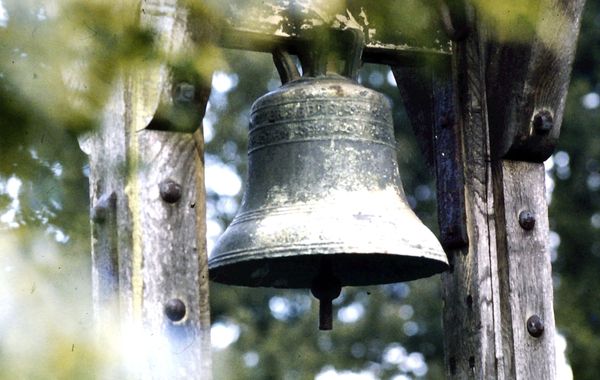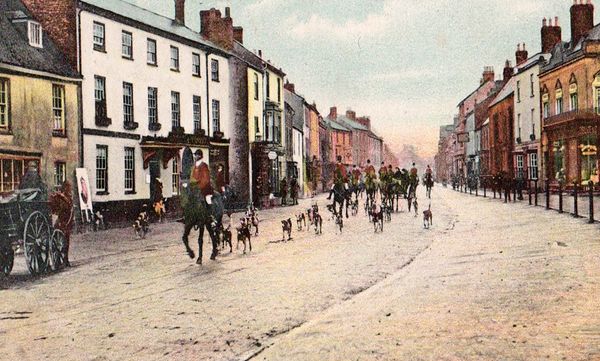The Crown Hotel
The above etching, taken from John Dunkin's ‘History of the Bullingdon and Ploughley Hundreds, Vol. 2’, shows Sheep Street and the front of the Crown Hotel in 1822.
The Crown Hotel, which once stood on the site of the Sheep Street entrance to Crown Walk, was built in the late 17th century and became one of two large coaching inns operating a coaching service from Bicester in the 19th century, the other being the King’s Arms Hotel on Market Hill.
In the 1840s the Towcester and Oxford Royal Mail coach left the hotel each evening at 6pm for Middleton Stoney, Brackley and Towcester, and then returned to Bicester before setting off for Oxford at 8am the next morning. It was also possible to hire a range of carriages and carts from the hotel, which were kept in stables at the side of the building.
As well as accessing the stables, the archway on the right also gave access to the Corn Exchange that was located behind the hotel and hosted many events in the 19th and early 20th centuries. The annual Hunt Ball being one of the highlights.
Henry King bought the hotel in the early 1840s and lived there with his family until his death in 1872. He and his partner, Samuel Beesley, started a coach service to Oxford in 1844 that left the hotel at 9am every day and travelled via Wendlebury, returning from Oxford at 4:45pm. The success of this service led to them extending the route to Brackley in 1847, when the coach would leave Brackley at 7:50am, call in at Bicester at 8:50am, and then reach Oxford in time for the third-class train to London (this was still a few years before the railway came to Bicester). It would then leave Oxford at 4:50pm, just after the arrival of the 2pm train from Paddington.
After Henry died, Mark Rest took over the hotel and ran it for several years until he was declared bankrupt in 1889 and was forced to sell it. During his time at the hotel he established a name for himself within the local hunting community for his excellent catering skills. He regularly provided the dinners for the Bicester Hunt balls and meetings that were held in the Corn Exchange.
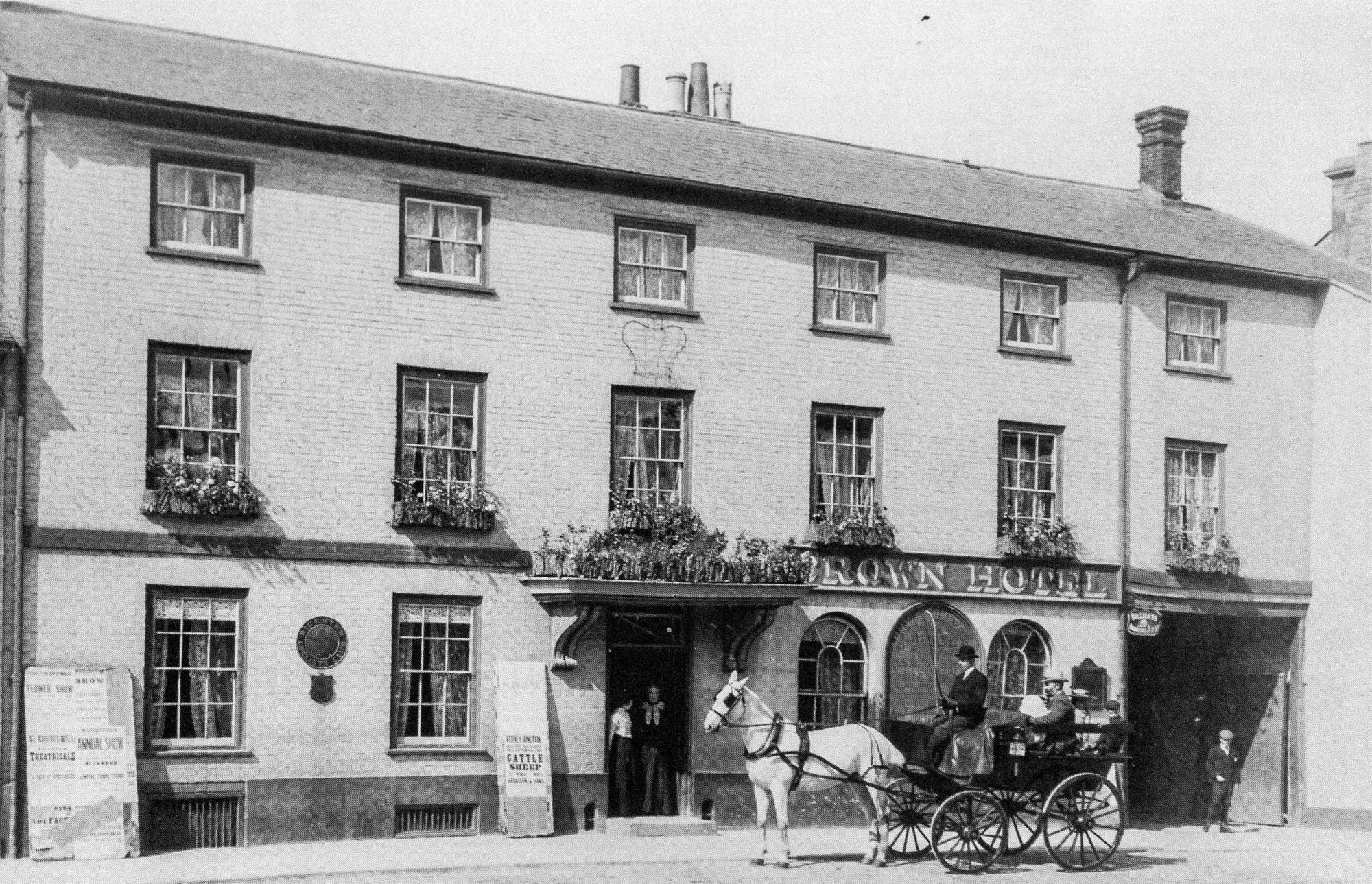
Sometime around 1921 the hotel’s ballroom was converted into a cinema. In the days before the Regal Cinema opened in 1934 this was the town’s only cinema. Unfortunately, it only lasted about 20 years. The cinema was gutted by fire on 4th July 1943. Local residents in Sheep Street were terrified that the fire would attract the attention of German bombers. But it did not, and the building later reopened, not as a cinema though, instead they reverted it back to a ballroom.
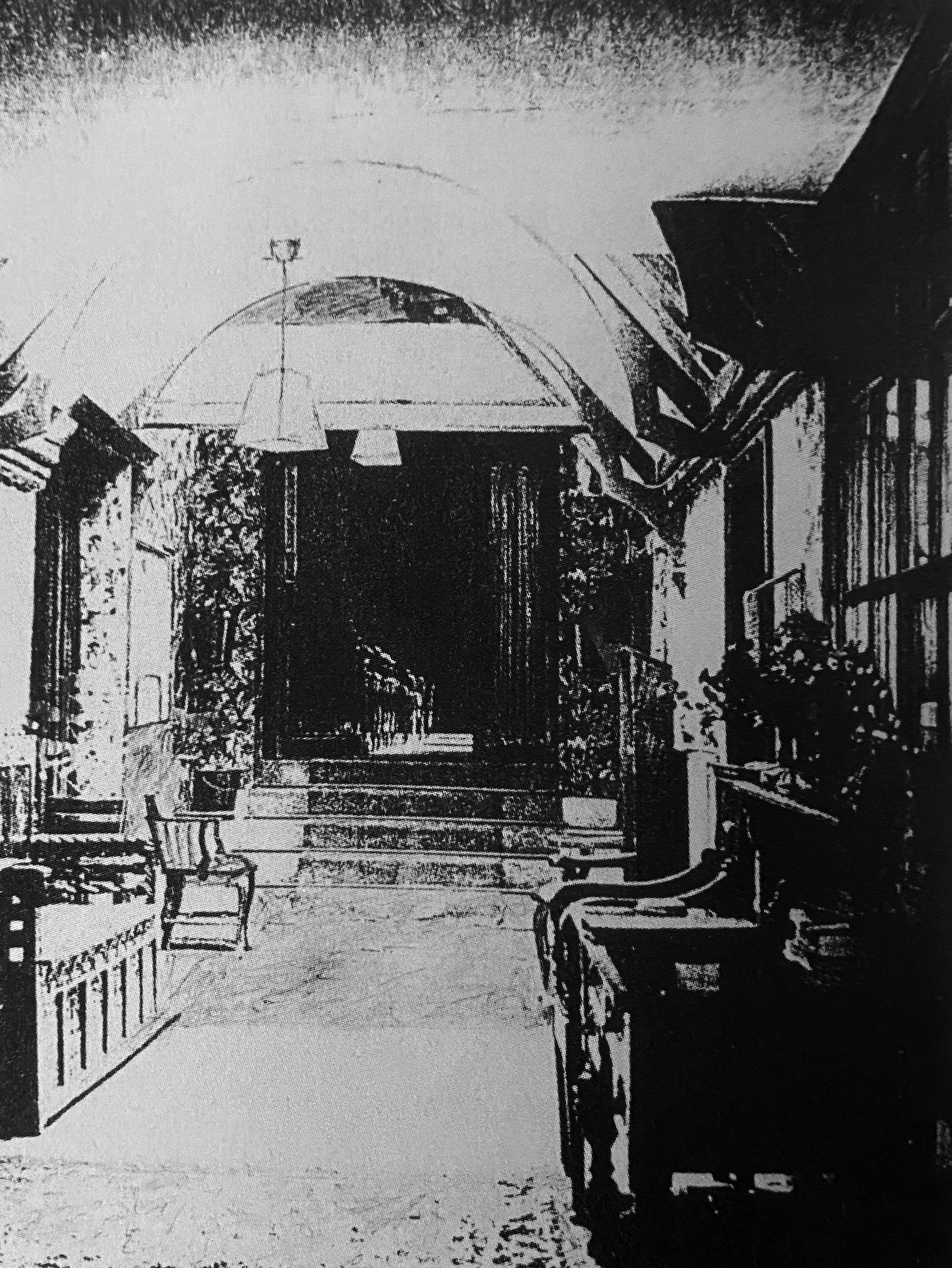
The hotel was eventually demolished in 1965 to make way for a new Tesco store which, in its turn, was demolished to make way for Crown Walk. During the demolition it was revealed that the building had started life as a two-story building with a side entry and cellar. But sometime in the early 1800s a third floor was added to the front by altering the roofline and building a new façade. Many of the buildings still standing in the town centre today show signs of having been similarly altered in the past.
Past hoteliers include: William Clark (1790s), William Hitchman (1810s-1830s), Henry King (1830s-1865), William Aldworth (1865-1867), William Painter & Walter Edwards (1867-1872), George Boxall (1872-1874), John Stowe (1874-1879), Septimus Garlick (1879-1880), Mark Rest (1880-1889), James Cannon (1889-1893), Charles Higgins (1893-1898), Aubert Wicks (1898-1899), C.H. Matthews (1899-1902), John Drover (1902-1914), Beatrice Loder (1914-1926), Mrs K. Allen (1926-1930), Mrs M. Tootill (1930-1938), and Alfred Tilt (1938+)
